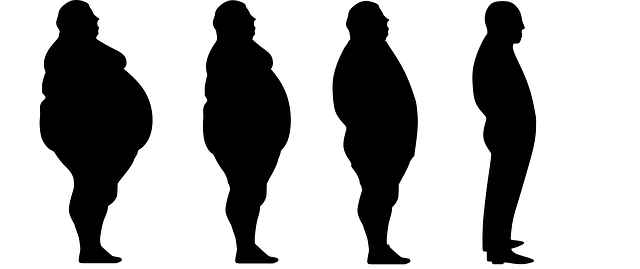Although losing weight can be tough there are 10 ways to lose weight fast methods. It is important to remember that losing weight quickly can be difficult to maintain in the long run. Losing weight fast is possible by making simple changes to your diet and lifestyle.
Here are 10 ways to lose weight fast:
Don’t Drink High-Calorie Beverages

Limiting the consumption of high-calorie beverages is often recommended for maintaining a healthy lifestyle and managing weight. High-calorie beverages, such as sugary sodas, sweetened fruit juices, energy drinks, and certain coffee drinks, can contribute a significant amount of empty calories to your diet and it will help you to weight lose fast.
Here are some reasons to consider avoiding or minimizing the intake of high-calorie beverages:
Weight Management: High-calorie beverages can contribute to an excess intake of calories, leading to weight gain over time. Liquid calories are often less satisfying than calories from solid food, making it easier to consume more calories than needed.
Added Sugars: Many high-calorie beverages contain added sugars, which can contribute to various health issues such as obesity, type 2 diabetes, and tooth decay. Excess sugar intake has been linked to an increased risk of chronic diseases.
Nutrient Deficiency: Consuming high-calorie beverages may provide little to no nutritional value. They can displace nutrient-dense foods from your diet, potentially leading to nutrient deficiencies if not balanced with a variety of nutritious foods.
Hydration: Water is a calorie-free and essential beverage for staying hydrated. Choosing water over high-calorie beverages helps ensure proper hydration without adding unnecessary calories.
Blood Sugar Control: Beverages with high sugar content can lead to rapid spikes and crashes in blood sugar levels. This can negatively impact energy levels and mood, and may contribute to insulin resistance over time.
Instead of high-calorie beverages, consider opting for healthier alternatives:
Water: Stay hydrated by drinking plain water throughout the day.
Herbal Tea: Unsweetened herbal teas can be a flavorful and calorie-free option.
Sparkling Water: If you enjoy carbonation, opt for plain or lightly flavored sparkling water without added sugars.
Infused Water: Add natural flavors to your water by infusing it with fruits, vegetables, or herbs.
Limiting Portion Sizes: If you choose to consume high-calorie beverages occasionally, consider smaller portion sizes to reduce overall calorie intake.
Making mindful choices about beverage consumption is a simple yet effective way to support overall health and well-being.
Drink More Water

Drinking an adequate amount of water is crucial for maintaining good health. Here are several reasons why it’s important to drink more water:
Hydration: Water is essential for the proper functioning of the body. It helps maintain bodily fluids, regulate temperature, and supports various physiological processes.
Nutrient Transport: Water plays a key role in transporting nutrients to cells and removing waste products from the body. It facilitates the absorption of essential vitamins and minerals.
Joint Lubrication: Adequate hydration helps lubricate joints and supports overall joint health. This is particularly important for physical activity and preventing stiffness.
Digestive Health: Water aids in digestion and helps prevent constipation. It softens stool, making it easier to pass through the digestive tract.
Skin Health: Proper hydration contributes to healthy skin. Dehydration can lead to dryness and premature aging of the skin. Drinking enough water helps maintain skin elasticity and a youthful appearance.
Energy Levels: Dehydration can lead to fatigue and a decrease in energy levels. Staying well-hydrated supports overall energy and vitality.
Weight Management: Drinking water before meals can contribute to a feeling of fullness, potentially reducing the amount of food consumed during a meal. It can also be a helpful strategy for weight management.
Cognitive Function: Proper hydration is important for cognitive function and concentration. Dehydration can negatively impact mood, focus, and mental clarity.
To ensure you’re drinking enough water:
Set a Routine: Establish a habit of drinking water throughout the day. Carry a reusable water bottle to make it easier to stay hydrated.
Listen to Your Body: Pay attention to your body’s signals for thirst. Drink water when you feel thirsty, and consider it a regular part of your daily routine.
Monitor Urine Color: The color of your urine can be a good indicator of hydration. Pale yellow urine generally indicates proper hydration, while dark yellow or amber may suggest dehydration.
Consider Physical Activity: If you’re physically active, you may need to increase your water intake to compensate for fluid loss through sweat.
Remember that individual water needs can vary based on factors such as age, activity level, climate, and overall health. It’s generally recommended to aim for about 8 cups (64 ounces) of water per day, but some individuals may require more and it will help you to weight lose fast. Always consult with a healthcare professional for personalized advice on hydration.
Use A Smaller Plate

Using a smaller plate is a simple and effective strategy that can contribute to weight loss by helping control portion sizes. Here’s how it works:
Portion Control: When you use a smaller plate, it naturally limits the amount of food you can put on it. This can help prevent overeating and encourage portion control. Research suggests that people tend to eat larger portions when they have larger plates, leading to increased calorie intake.
Visual Perception: The size of the plate can influence your perception of the amount of food you’re consuming. A smaller plate with well-portioned food may still appear satisfying, tricking the brain into feeling satisfied with less food.
Mindful Eating: Using a smaller plate encourages mindful eating. By paying attention to the food on your plate and savoring each bite, you become more aware of your hunger and fullness cues. This can lead to better control over your eating habits.
Reduced Caloric Intake: Studies have shown that people who use smaller plates tend to consume fewer calories during a meal compared to those using larger plates. This reduction in caloric intake can contribute to weight loss or weight maintenance.
While using a smaller plate can be a helpful strategy, it’s important to keep in mind that it’s just one aspect of a comprehensive approach to weight loss. Other factors, such as the types of foods you choose, regular physical activity, and overall lifestyle habits, also play a crucial role in achieving and maintaining a healthy weight.
Here are some additional tips for successful weight loss:
Choose Nutrient-Dense Foods: Focus on foods that are rich in nutrients and low in empty calories. Include plenty of fruits, vegetables, lean proteins, and whole grains in your diet.
Stay Active: Incorporate regular physical activity into your routine. This can include a mix of cardiovascular exercise, strength training, and flexibility exercises.
Stay Hydrated: Drinking an adequate amount of water can help control hunger and support overall health.
Get Enough Sleep: Lack of sleep can affect hormones that regulate hunger and appetite. Aim for 7-9 hours of quality sleep per night.
Seek Professional Guidance: Consult with a healthcare professional or a registered dietitian for personalized advice and guidance tailored to your specific needs and goals.
Remember, sustainable and long-term weight loss is best achieved through a combination of healthy eating habits, regular physical activity, and lifestyle changes; which will help you to weight lose fast.
Add Protein To Your Daily Diet

Adding protein to your daily diet can be a beneficial strategy for weight loss. Protein is an essential nutrient that plays several roles in the body, and incorporating it into your meals can have positive effects on your weight loss journey. Here’s how protein can contribute to weight loss:
Increased Satiety: Protein-rich foods tend to be more filling than those high in carbohydrates or fats. Including protein in your meals can help you feel satisfied and reduce overall hunger, which may lead to consuming fewer calories throughout the day.
Preservation of Lean Muscle Mass: When losing weight, it’s important to preserve lean muscle mass. Protein is crucial for maintaining muscle mass, and a higher protein intake can help minimize muscle loss during weight loss efforts.
Thermic Effect of Food (TEF): The body expends energy to digest and metabolize food, known as the thermic effect of food. Protein has a higher thermic effect compared to carbohydrates and fats, meaning that the body burns more calories during the digestion of protein-rich foods.
Blood Sugar Regulation: Including protein in your meals can help stabilize blood sugar levels, reducing the likelihood of energy crashes and cravings for sugary or high-calorie snacks.
Support for Exercise and Physical Activity: Protein is essential for repairing and building tissues, making it crucial for individuals engaging in regular physical activity. It can help support muscle recovery and contribute to overall exercise performance.
To incorporate more protein into your diet:
Include Lean Protein Sources: Choose lean protein sources such as poultry, fish, tofu, legumes, low-fat dairy, eggs, and lean cuts of meat.
Balance Your Meals: Aim to include a source of protein in each meal. This can help create a balanced plate and contribute to satiety.
Snack Smart: Choose protein-rich snacks, such as Greek yogurt, cottage cheese, nuts, or seeds, to help control hunger between meals.
Consider Protein Supplements: If it’s challenging to meet your protein needs through whole foods alone, protein supplements such as protein powder or bars can be convenient options.
Stay Hydrated: Drinking enough water is important, especially when increasing protein intake. Proper hydration supports digestion and overall health.
It’s essential to note that while protein is important for weight loss, a balanced and varied diet that includes a mix of macro-nutrients (protein, carbohydrates, and fats) is key for overall health. Before making significant changes to your diet, it’s advisable to consult with a healthcare professional or a registered dietitian to ensure that your nutritional needs are met and to receive personalized guidance based on your individual circumstances.
Try To Include Healthy Fats

Including healthy fats in your diet can indeed be a beneficial component of a well-rounded and effective weight loss plan. While the term “fat” often carries a negative connotation, healthy fats play essential roles in the body and can contribute to satiety, nutrient absorption, and overall well-being. Here’s how incorporating healthy fats can support weight loss:
Satiety and Satisfaction: Healthy fats are more calorie-dense than carbohydrates and protein, which means they can help you feel fuller for longer. Including sources of healthy fats in your meals may prevent overeating and reduce the likelihood of snacking on less nutritious options.
Balanced Nutrition: A balanced diet includes a mix of macronutrients, including carbohydrates, protein, and fats. Healthy fats, such as those found in avocados, nuts, seeds, and olive oil, contribute to a well-rounded nutritional profile.
Stabilization of Blood Sugar Levels: Healthy fats can slow down the digestion and absorption of carbohydrates, leading to a more gradual and stable release of glucose into the bloodstream. This can help regulate blood sugar levels and reduce cravings for sugary snacks.
Nutrient Absorption: Certain vitamins (A, D, E, and K) are fat-soluble, meaning they are better absorbed in the presence of dietary fats. Including healthy fats ensures that your body can effectively absorb and utilize these essential nutrients.
Energy Source: Fats serve as an energy source, especially during low-intensity activities. Including healthy fats in your diet provides a sustained source of energy, which can be particularly important for individuals engaging in regular physical activity.
To incorporate healthy fats into your diet:
Avocado: Add slices of avocado to salads, sandwiches, or use it as a spread.
Nuts and Seeds: Snack on a handful of nuts or seeds, or sprinkle them on yogurt, oatmeal, or salads.
Olive Oil: Use extra virgin olive oil for cooking or as a salad dressing.
Fatty Fish: Include fatty fish like salmon, mackerel, or trout in your diet for a good source of omega-3 fatty acids.
Nut Butters: Choose natural nut butters without added sugars or hydrogenated oils. Spread them on whole-grain toast or use them as a dip for fruits and vegetables.
Coconut Oil: Use coconut oil for cooking, but be mindful of portion sizes due to its high calorie content.
While including healthy fats is beneficial, it’s crucial to practice moderation and be mindful of overall calorie intake. Weight loss is ultimately about creating a calorie deficit, where you consume fewer calories than your body expends. A balanced approach that includes a variety of nutrient-dense foods, coupled with regular physical activity, is key for achieving and maintaining a healthy weight and it will help you to weight lose fast. Before making significant dietary changes, it’s advisable to consult with a healthcare professional or a registered dietitian to ensure that your nutritional needs are met and to receive personalized guidance based on your individual circumstances.
Incorporate HIIT workouts

High-Intensity Interval Training (HIIT) workouts can be an effective and efficient addition to your weight loss efforts. HIIT involves alternating short bursts of intense exercise with periods of rest or lower-intensity activity. Here’s how incorporating HIIT workouts can contribute to weight loss:
Increased Caloric Burn: HIIT workouts can help you burn a significant amount of calories in a relatively short period. The intense bursts of activity elevate your heart rate and increase calorie expenditure, contributing to overall energy balance.
Afterburn Effect (EPOC): HIIT can lead to an Excess Post-Exercise Oxygen Consumption (EPOC), commonly known as the afterburn effect. This means your body continues to burn calories at an elevated rate even after the workout is completed, helping with additional calorie expenditure.
Fat Loss: HIIT has been shown to be effective in promoting fat loss, especially around the abdominal area. The combination of intense intervals and brief recovery periods can enhance fat oxidation.
Preservation of Lean Muscle Mass: Unlike traditional steady-state cardio, which may contribute to muscle loss, HIIT workouts can help preserve lean muscle mass while promoting fat loss. This is crucial for maintaining a healthy metabolism.
Improved Metabolic Rate: Regular HIIT workouts may have a positive impact on your metabolic rate. Building and maintaining muscle through high-intensity exercises can contribute to an increased basal metabolic rate (BMR), which means your body burns more calories at rest.
To incorporate HIIT into your routine:
Choose Your Activities: HIIT can be adapted to various forms of exercise, including running, cycling, bodyweight exercises, and more. Choose activities that you enjoy and that align with your fitness level.
Start Gradually: If you’re new to HIIT, start with shorter sessions and gradually increase the intensity and duration as your fitness level improves.
Include Strength Training: Combine HIIT with strength training exercises to enhance muscle development and overall fitness.
Follow a Structured Plan: Look for HIIT workout routines designed by fitness professionals or consider working with a personal trainer to create a personalized plan.
Include Recovery: Allow your body sufficient time for recovery between HIIT sessions. Overtraining can lead to fatigue and increased risk of injury.
Before starting any new exercise program, especially if you have pre-existing health conditions, it’s advisable to consult with a healthcare professional or a certified fitness expert to ensure that HIIT is safe and suitable for your individual needs.
Get Enough Sleep

Getting enough sleep is a crucial factor in supporting weight loss and overall health. Poor sleep has been associated with weight gain and can affect various aspects of your metabolism and eating behaviors. Here’s how adequate sleep contributes to weight loss:
Regulation of Hunger Hormones: Lack of sleep can disrupt the balance of hormones that regulate hunger and appetite. Ghrelin, the hormone that stimulates appetite, tends to increase, while leptin, the hormone that signals fullness, decreases when you are sleep-deprived. This hormonal imbalance can lead to increased feelings of hunger and a greater likelihood of overeating.
Improved Food Choices: Adequate sleep is associated with better food choices. When you’re tired, you may be more inclined to reach for high-calorie, sugary snacks for a quick energy boost. Quality sleep helps maintain better decision-making when it comes to food.
Energy Balance: Lack of sleep can lead to fatigue and reduced motivation for physical activity. When you’re well-rested, you’re more likely to have the energy and motivation to engage in regular exercise, contributing to a better overall energy balance.
Blood Sugar Regulation: Quality sleep supports proper insulin sensitivity and blood sugar regulation. Chronic sleep deprivation has been linked to insulin resistance, which can contribute to weight gain and an increased risk of type 2 diabetes.
Reduced Late-Night Snacking: People who get sufficient sleep are less likely to engage in late-night snacking. Improved sleep habits can help regulate eating patterns and reduce the consumption of extra calories during nighttime hours.
To improve your sleep for weight loss:
Establish a Sleep Routine: Go to bed and wake up at the same time every day, even on weekends. Establishing a consistent sleep routine helps regulate your body’s internal clock.
Create a Comfortable Sleep Environment: Ensure your bedroom is conducive to sleep. This includes a comfortable mattress and pillows, as well as a cool, dark, and quiet environment.
Limit Screen Time: Reduce exposure to screens (phones, computers, TVs) at least an hour before bedtime. The blue light emitted from screens can interfere with the production of the sleep hormone melatonin.
Limit Caffeine and Stimulants: Avoid consuming caffeine or stimulants in the hours leading up to bedtime. These substances can interfere with your ability to fall asleep.
Manage Stress: Practice relaxation techniques, such as deep breathing or meditation, to manage stress and promote a calm state before bedtime.
Prioritizing sleep as part of your overall health and wellness routine can positively impact your weight loss journey. If sleep problems persist, it’s advisable to consult with a healthcare professional for further evaluation and guidance.
Reduce Stress Levels

Reducing stress levels can play a significant role in supporting weight loss and overall well-being. Chronic stress can trigger various physiological responses that may contribute to weight gain and make it challenging to lose weight fast. Here’s how managing stress can positively impact weight loss:
Cortisol Regulation: Chronic stress can lead to elevated levels of cortisol, a hormone associated with the body’s stress response. High cortisol levels have been linked to increased abdominal fat deposition. Managing stress can help regulate cortisol levels and reduce the likelihood of excess belly fat.
Emotional Eating Control: Many people turn to food for comfort when stressed, leading to emotional eating. By finding alternative ways to cope with stress, such as through relaxation techniques, mindfulness, or physical activity, you can reduce the tendency to use food as a coping mechanism.
Improved Sleep: Stress can negatively impact sleep quality, and insufficient sleep has been linked to weight gain. Managing stress through relaxation techniques and other stress-reducing activities can contribute to better sleep, supporting your weight loss goals.
Balanced Hormones: Chronic stress can disrupt the balance of hormones involved in appetite regulation, leading to increased cravings for high-calorie and sugary foods. By managing stress, you can help maintain a more balanced hormonal environment that supports healthy eating habits.
Enhanced Self-Control: Stress can impair cognitive functions, including decision-making and self-control. By reducing stress levels, you may find it easier to make healthier food choices and resist the temptation of unhealthy snacks.
Here are some strategies to reduce stress for weight loss:
Regular Physical Activity: Exercise is a powerful stress reliever. Whether it’s walking, jogging, yoga, or other forms of exercise, incorporating regular physical activity into your routine can help reduce stress levels.
Mindfulness and Meditation: Practices such as mindfulness meditation can promote relaxation and reduce stress. These techniques can be learned and practiced regularly to enhance overall well-being.
Deep Breathing Exercises: Deep breathing exercises can activate the body’s relaxation response and help reduce stress. Simple techniques, such as diaphragmatic breathing, can be effective.
Time Management: Organize your time effectively to reduce feelings of being overwhelmed. Prioritize tasks, set realistic goals, and take breaks when needed.
Social Support: Maintain a strong support network of friends and family. Talking to someone about your feelings can provide emotional support and help alleviate stress.
Hobbies and Leisure Activities: Engage in activities you enjoy, whether it’s reading, listening to music, gardening, or any other hobby. These activities can serve as a positive distraction and stress reliever.
It’s important to note that everyone responds to stress differently, and finding what works best for you may require some experimentation. If stress levels persist or significantly impact your daily life, consider seeking support from a healthcare professional or a mental health expert. They can provide guidance and additional resources to help manage stress effectively.
Limit Carbohydrates

Limiting carbohydrate intake is a dietary strategy that some people choose to adopt for weight loss. While reducing carbohydrates can lead to initial weight loss, it’s essential to approach this approach with caution and consider individual health needs. Here are some considerations:
Initial Water Weight Loss: When you limit carbohydrates, your body may lose water weight initially. Carbohydrates are stored in the body along with water in the form of glycogen. When glycogen stores are depleted, water is released, leading to a rapid drop in weight. This is not the same as losing fat, and the weight loss may be temporary.
Energy Source: Carbohydrates are a primary source of energy for the body. When you limit carb intake, your body may shift to using stored fat for energy, potentially leading to fat loss over time. However, this process is complex, and the overall energy balance (calories in vs. calories out) remains a critical factor for weight loss.
Nutrient Intake: Carbohydrates provide essential nutrients, including fiber, vitamins, and minerals. Restricting carbohydrates significantly may result in a reduced intake of these nutrients, potentially impacting overall health.
Sustainability: Extremely low-carbohydrate diets may be challenging to maintain over the long term. Many people find it difficult to adhere to very restrictive diets, and sustainability is crucial for long-term weight management.
Individual Variability: The ideal macronutrient composition varies among individuals. Some people may respond well to lower-carb diets, while others may thrive on a balanced intake of carbohydrates, proteins, and fats. It’s essential to find an approach that works for your body and preferences.
Focus on Quality: Rather than eliminating all carbohydrates, consider focusing on the quality of your carbohydrate sources. Choose whole, unprocessed foods like fruits, vegetables, legumes, and whole grains, which provide essential nutrients and fiber.
Consultation with Healthcare Professionals: Before making significant changes to your diet, especially if you have pre-existing health conditions, consult with a healthcare professional or a registered dietitian. They can provide personalized advice based on your health status, goals, and dietary preferences.
Remember that a balanced and sustainable approach to weight loss involves a combination of healthy eating, regular physical activity, and lifestyle changes. It’s advisable to choose an eating plan that aligns with your individual needs and preferences, promoting overall well-being rather than focusing solely on the restriction of specific macronutrients.
Do Not Skip Breakfast

Not skipping breakfast can be a beneficial approach for weight loss and overall health. Breakfast is often considered an important meal because it provides the body with essential nutrients and energy after an overnight fast. Here are some reasons why not skipping breakfast can support weight loss fast:
Metabolism Boost: Eating breakfast in the morning can help kickstart your metabolism, which is the process by which your body burns calories for energy. This can contribute to overall calorie expenditure throughout the day.
Controlled Hunger: Consuming a balanced breakfast can help control hunger and prevent overeating later in the day. When you skip breakfast, you may be more likely to feel excessively hungry later on, leading to poor food choices and larger portion sizes.
Stable Blood Sugar Levels: Eating breakfast can help regulate blood sugar levels, preventing the energy crashes and cravings for sugary or high-calorie snacks that may occur when blood sugar levels drop.
Improved Nutrient Intake: Breakfast provides an opportunity to include essential nutrients in your diet, such as fiber, vitamins, and minerals. A balanced breakfast that includes a mix of food groups supports overall nutritional well-being.
Enhanced Cognitive Function: Eating breakfast has been associated with improved cognitive function, including better concentration, memory, and mood. This can positively impact your ability to make healthy choices throughout the day.
When choosing breakfast options for weight loss, consider the following tips:
Include Protein: Incorporate protein-rich foods such as eggs, Greek yogurt, cottage cheese, or lean meats. Protein helps promote satiety and supports muscle maintenance.
Include Fiber: Choose whole grains, fruits, and vegetables to add fiber to your breakfast. Fiber helps keep you full and supports digestive health.
Limit Added Sugars: Be mindful of added sugars in breakfast foods and opt for minimally processed options. This can help prevent unnecessary calorie intake.
Hydrate: Start your day with a glass of water to stay hydrated. Hydration is essential for overall health and can contribute to a feeling of fullness.
Plan Ahead: Prepare breakfast items in advance to make it easier to incorporate a nutritious meal into your morning routine, especially if you have a busy schedule.
Remember, the way how to successful weight lose fast is adopting a sustainable and balanced approach that includes a variety of nutrient-dense foods, regular physical activity, and other healthy lifestyle habits. Individual preferences and needs may vary, so it’s essential to find a routine that works for you.
Losing weight fast can be challenging, but incorporating these healthy lifestyle changes can help you achieve your weight loss goals. Remember to consult with your doctor before starting any new diet or exercise program, especially if you have any underlying health conditions.







1 Comment